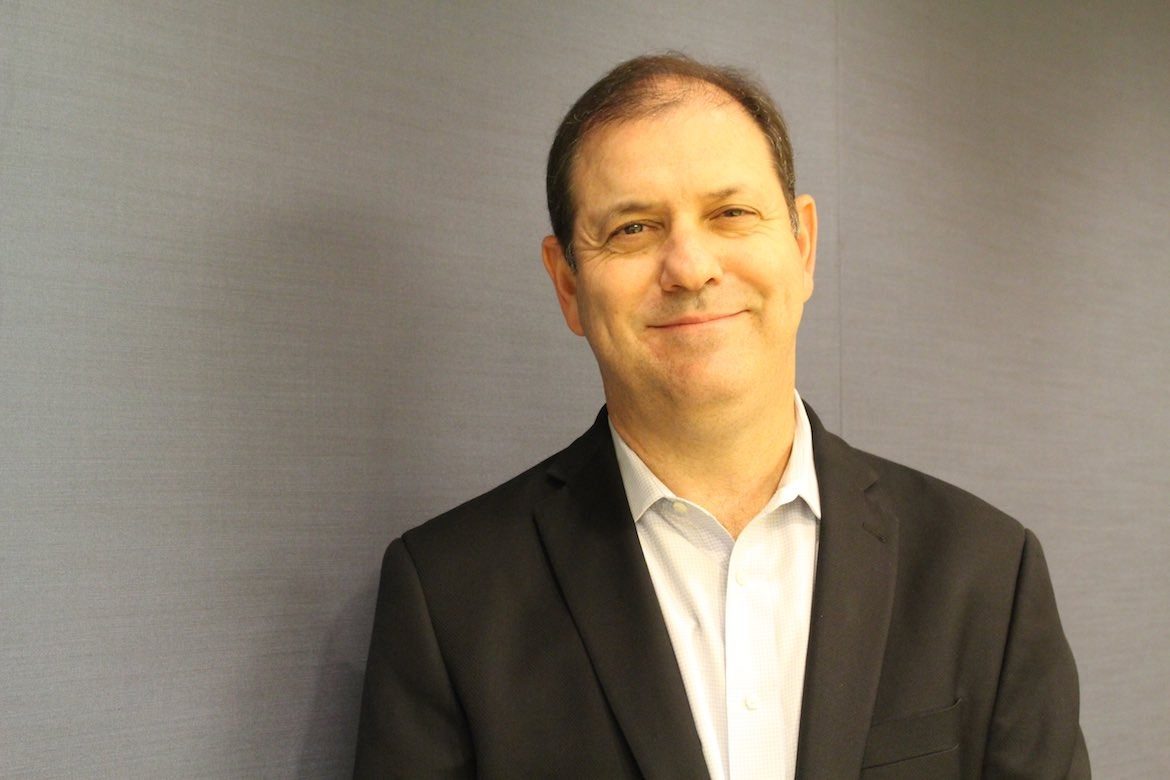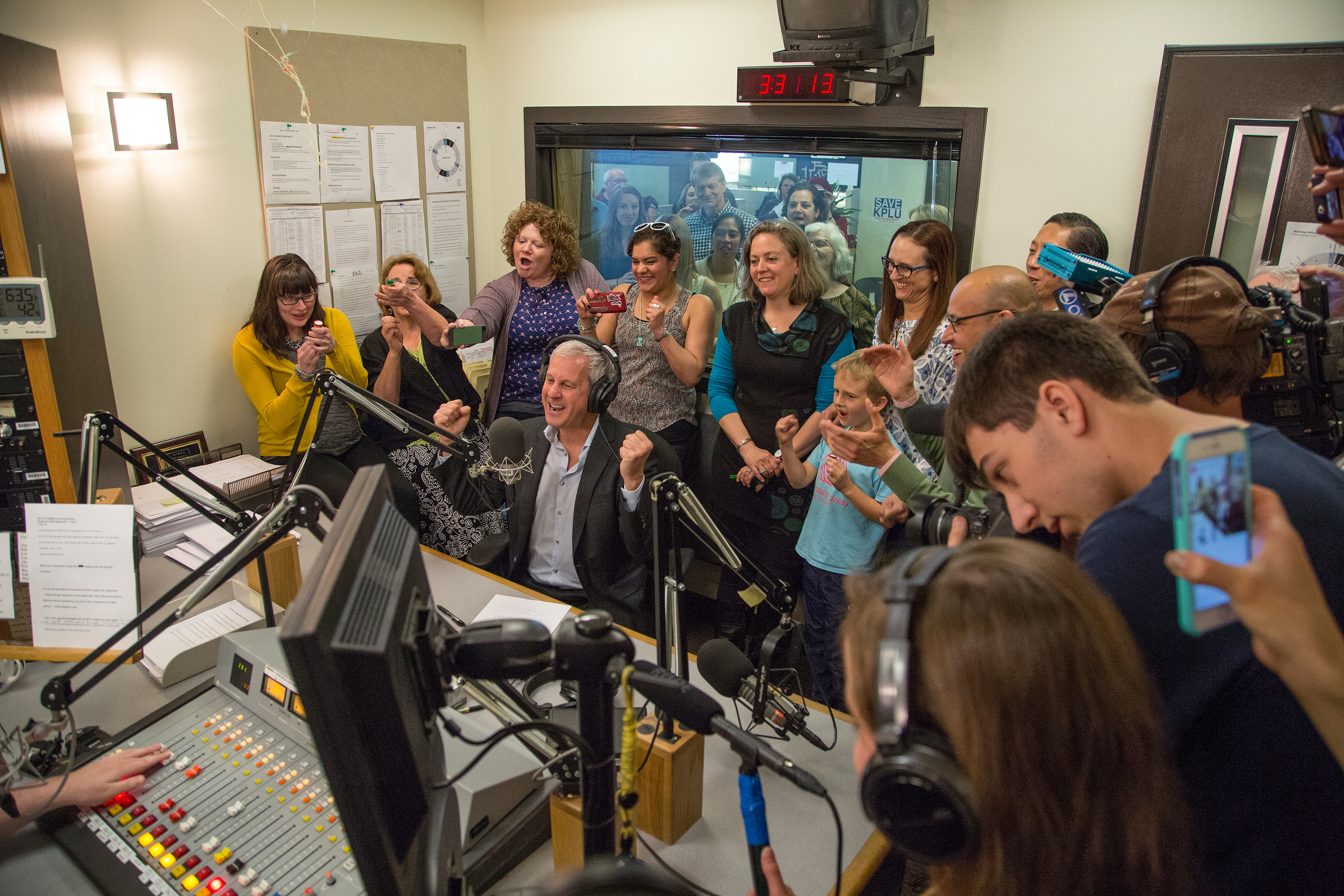Ken Stern: Don’t deny an obvious truth about the media

Griffin Greenberg
Stern
Brian Mann’s critique of my New York Post op-ed correctly notes that journalists strive hard to understand the complexity of issues and, particularly at NPR, to look beyond the coasts for stories and perspectives. But there is a larger context that I am trying to highlight, which Mann and the media ignore at our collective peril.
Only about 35 percent of Americans trust the media, a number that is not very different than the trust numbers for President Trump, if you want an unflattering comparison. Some of that has to do with factors outside the media’s control — the decline in trust in institutions generally and the cumulative effect of daily attacks by those inside and outside the media — but some of it comes from the media’s defensiveness and an unwillingness to recognize what is obvious to everyone else.
It is possible to hold two thoughts at the same time — that reporters and editors at places like NPR, the Washington Post, and the New York Times are talented, hard-working, dedicated to the craft of journalism and intellectually curious and subject to the impact of political homogeneity in the newsroom. The media generally, and NPR in particular, draw on a generally liberal pool of people for their newsroom talent, and the fact that some of that public radio talent lives in middle America does not obviate the fact that the public radio employee base tilts heavily to the left. To be fair, the data to support that is limited, and I could be proven wrong (and would be happy to say so if I were), but let’s get real: If there were such a census, I think we all know how it would turn out.
There are consequences to political homogeneity, some of which is no doubt ameliorated by the careful application of journalistic principles, but the subtle effect of groupthink and confirmation bias can have a substantial effect on coverage. I wrote about this last year for Vanity Fair with the focus on the Washington Post, and the dangers are higher now in the age of Trump, when it is likely that the vast majority of newsroom staff have at least a rooting interest in “the resistance.”
This is not to say that only the “liberal media” suffers from groupthink; the same can be said about the denizens of the right, and my new book is ultimately about the corrosive effect political balkanization has on all our abilities to engage well across party lines. It is understandable, god knows, that people object to President Trump, but it is discrediting to deny publicly what is obviously true about the media, and being angry about it doesn’t add to the credibility of the effort one bit.
Mann’s comments about the risk of cultural tourism did hit home with me. That risk comes with any book project like this, and I worried about that quite a bit in the early days of my research. But I ultimately felt comforted by the fact that everywhere I went — churches, diners, into people’s homes — people were eager to talk with me, often insistently. And that was because, everywhere I went, conservatives wanted to express how they feel locked out of the national conversation and how they feel patronized and vilified by the media and others. That is not about NPR in particular, which I have always to be found respectful to all, but everyone in media is tarred by that sense of anger and disillusionment.
Some have responded to my New York Post article by denying the existence of groupthink and confirmation bias. That’s wrong on the science, but it is also clear to me that people in media recognize the potential ill effect of the lack of diversity in most contexts: A qualified news organization would be foolish to cover race issues with only whites at the editorial table, and the same with gender issues and men. The same need for viewpoint diversity is true for politics as well. My New York Post article reflects the frustrations of many, many Americans. It is fine to ignore me but unwise, in my view, to ignore all of them.
Ken Stern is a former CEO of NPR and author of Republican Like Me: How I Left the Liberal Bubble and Learned to Love the Right.








If I take his NY Post comments on the “data” he uses to establish that the ratio of conservative to liberal newsroom members is 5:1, he’s using a 2004 (or maybe it was 2001, I forget) Pew survey. I assume that’s what he’s referring to above when he references “limited data.”
He’s also reporting the data incorrectly because he’s leaving out a few key critical factors, including the fact that the survey question did not post a liberal v. conservative question. It asked people to self identify and the OVERWHELMING percentage of journalists surveyed were neither liberal, nor conservative. They identified as moderate.
But you can’t sell a lot of books with that.
Yeah, they identified as “moderate,” which anyone being honest with themselves – like Ken Stern – knows to be nonsense. N.P.R.’s newsroom isn’t moderate, it is proudly left leaning. C.N.N.’s newsroom isn’t moderate, it is proudly left leaning. We can confidently say the same about The Atlantic, The New Republic, Vox, The Intercept, the New York Times, the Washington Post, the L.A. Times, the New Yorker, the Seattle Post-Intelligencer, M.S.N.B.C, C.N.B.C, The Guardian, Haaretz, Der Speigel, Al Jazeera – hell, even Reuters and the Associated Press. You can hide behind that nonsense if you want, but I guarantee you that left-wing journalists being honest with themselves readily know that claim to be poppycock.
There are some on your team, like Ken Stern, but also Jack Shafer and Tucker Dougherty (I’d even throw Jonathan Haidt and Yoel Inbar), who HAVE taken a data-driven look at the media bias and they have concluded the same things as you. Hell, the fact that they had to go out of their way to FIND that bias suggests that the bias runs even deeper – academia hasn’t bothered to look at this… because academia has been in the tank for the left for decades. Why highlight that national media is also head-over-heels for the Democrats? What purpose would that serve, but to undermine your own ideological preferences and allocate grant money away from studies which you completely genuinely believe to be a more useful expansion of knowledge?
Still, it nonetheless shocks me, that in the face of overwhelming evidence to the contrary, you’re digging your heels in on this hill. The data is there. You found, and chose to stick to, a basic and antiquated study – because anything more rigorous and modern (which exists, and is linked below) would force you to face the reality that your media has picked a side.
https://ballotpedia.org/Fact_check/Do_97_percent_of_journalist_donations_go_to_Democrats%3F
http://www.rci.rutgers.edu/~jussim/Duarte%20et%20al,%202015,%20BBS,%20target,%20commentaries,%20reply.pdf
https://mays.tamu.edu/department-of-accounting/wp-content/uploads/sites/3/2018/11/Meet-the-Press-paper.pdf
https://www.politico.com/magazine/story/2017/04/25/media-bubble-real-journalism-jobs-east-coast-215048
I find it hilarious that Stern tries to refute a largely data-driven critique by citing a data point that is both incorrect and taken wildly out of context: the “only 35% of Americans trust the media” line.
I assume he’s referring to a poll NPR/PBS NewsHour/Marist commissioned and reported on this July, seen here: http://www.npr.org/2017/07/03/535044005/americans-say-civility-has-worsened-under-trump-trust-in-institutions-down
First of all, the poll says only 30%…not 35…have either “a good amount” or “a great deal” of trust in the media. Does this make Stern’s point even moreso? Not quite, read on…but it does speak that he can’t be trusted to get the facts right.
A crucial distinction is that the poll broke down trust in media by political affiliation. 56% of Democrats trust the media, 28% of Independents do, but only 9% of Republicans. This speaks directly to the fallacy in Stern’s argument. He alleges conservation viewpoints are equally valid as liberals, but clearly they are not. When two groups of people look at the same content but only one overwhelmingly rejects it, that speaks to an inherent inequality of the validity of their viewpoints. We already know from literally dozens of other studies and surveys that conservatives routinely believe in things that are factually wrong, or only choose media outlets that leave them less informed than if they’d consumed no media at all (the infamous FDU PublicMind survey in 2012 that condemned Fox News).
“He alleges conservation viewpoints are equally valid as liberals, but clearly they are not”
Your smarmy arrogance and superiority is indicative of the NPR mindset writ large that the intelligentsia would make the perfect ruling class. The alt left truly believes conservatives are troglodytes and bitter clingers. And your putrid belief lead to the election of Trump and will lead to his reelection.
If you don’t believe our ideas are worthy of considering on par with your own, stop taxing us to fund your biased radio.
Facts and ideas are two different things.
“A fish doesn’t know it’s wet…” very apt description of most media today and especially NPR. I heard the NPR radio interview with Stern yesterday afternoon, lingering in my car long enough to hear all of it. I had to wave off the Mexican contractor looking for work in the Kroger parking lot. The liberal bias of the reporter was evident and every shibboleth she posited was promptly knocked down by Stern, especially regarding gun control. They just don’t get, do they?
Anybody who has spent any tume kistening to NPR knows who their demographic is and who they are reporting to. This pearl clutching about truthful liberal bias in media is ridiculous.
Apologies for the typos.